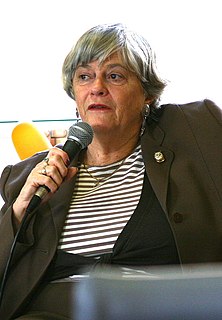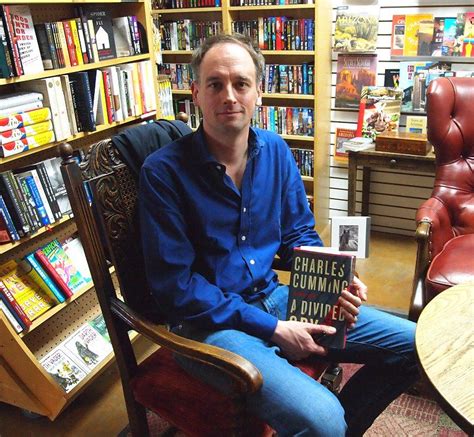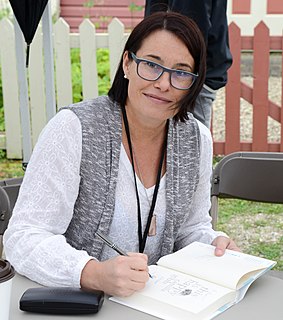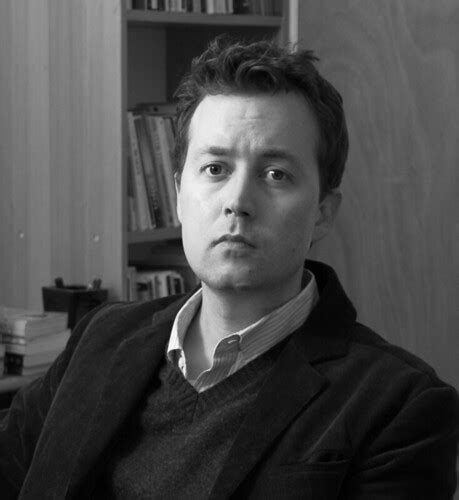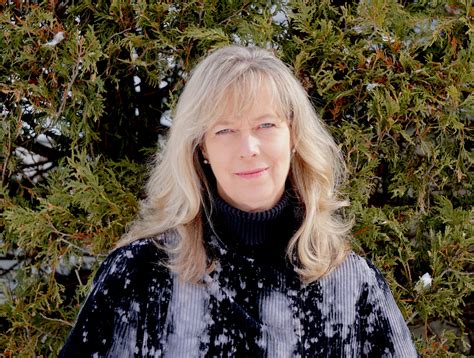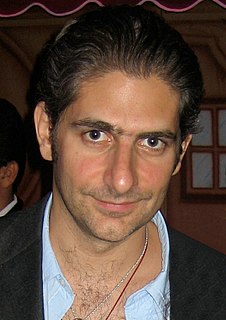Top 1200 Crime Fiction Quotes & Sayings - Page 19
Explore popular Crime Fiction quotes.
Last updated on November 17, 2024.
In a sense, journalism can be both helpful and detrimental to a writer of fiction because the kind of writing you need to do as a journalist is so different. It has to be clear, unambiguous, concise, and as a writer often you are trying to do things that are more ambiguous. I find that writing fiction is often an antidote to reading and writing too much journalism.
In, 1950, at the age, 19 I dropped out of St. George William College in Montreal, as it then was, and sailed for England on the Franconia. Foolishly, no arrogantly, believing I could put Canada and its picayune problems behind me, never dreaming it would become the raw material of most of my fiction and non-fiction. Or that I would care so deeply about its surviving intact.
There's basically an element of fiction in everything you remember. Imagination and memory are almost the same brain processes. When I write fiction, I know that I'm using a bunch of lies that I've made up to create some form of truth. When I write a memoir, I'm using true elements to create something that will always be somehow fictionalized.
We also heard the usual old nonsense that banning hunting would affect employment if we abolished crime we would put all the police out of work. If we abolished ill-health we would put all the nurses and doctors out of work. Will anybody argue that we should preserve crime and ill-health in order to keep people in jobs?
Mostly the natural landscapes work as a sounding board for my characters, so they can understand themselves, and it acts as a mirror in which we readers see ourselves. The natural world is the place into which all my characters have to situate themselves in order to be who they really are, and that makes my rural fiction feel different from a lot of urban fiction.
A fiction which is designed to inculcate an object wholly alien to the imagination sins against the first law of art; and if a writer of fiction narrow his scope to particulars so positive as polemical controversy in matters ecclesiastical, political or moral, his work may or may not be an able treatise, but it must be a very poor novel.
No nation ever taxed itself into prosperity. You could afford your house without the government-if it weren't for the government. Character matters; leadership descends from character. If you commit a crime, you're guilty. Compassion is no substitute for justice. Poverty is not the root cause of crime. The Los Angeles riots were not caused by the Rodney King verdict. The Los Angeles riots were caused by rioters.
I probably spend more time writing than reading science fiction. I find that science-fiction literature is so reactive to all the literature that's gone before that it's sort of like a fractal. It's gone to a level of detail that the average person could not possibly follow unless you're a fan. It iterates upon many prior generations of iterations.
The truth is that Trout, like Vonnegut and Ray Bradbury and many others, writes parables. These are set in frames which have become called, for no good reason, science fiction. A better generic term would be 'future fairy tales'. And even this is objectionable, since many science fiction stories take place in the present or the past, far and near.
I think that I had read so much fiction that the craft itself sort of sank into me. I didn't read any 'how to' books or attend any popular-fiction-writing classes or have a critique group. For many years into my writing, I didn't even know another author. For me, a lot of reading was the best teacher.
When everything does seem out of control, writing fiction is a way I can order that chaos and restore some sort of meaning. I like the playful aspect of writing fiction. You know how it is when we are kids and we make up our worlds: You be this guy, and I am going to be this guy, and we are going to go slay dragons.
The process of writing fiction is totally unconscious. It comes from what you are learning, as you live, from within. For me, all writing is a process of discovery. We are looking for the meaning of life. No matter where you are, there are conflicts and dramas everywhere. It is the process of what it means to be a human being; how you react and are reacted upon, these inward and outer pressures. If you are writing with a direct cause in mind, you are writing propaganda. It's fatal for a fiction writer.
I find a difference in British spy fiction and American spy fiction. In the American version, it's more militaristic, partly because the CIA has more of the military makeup. Whereas MI6 is more of a cerebral, intelligence-based, relationship-based service, i.e., all they do is recruit people to get information out of them.
In that dramatic scene on Calvary's hill three men were crucified.... All three were crucified for the same crime-the crime of extremism. Two were extremists for immorality, and thus fell below their environment. The other, Jesus Christ, was an extremist for love, truth and goodness, and thereby rose above his environment. Perhaps the South, the nation and the world are in dire need of creative extremists.
I write fiction longhand. That's not so much about rejecting technology as being unable to write fiction on a computer for some reason. I don't think I would write it on a typewriter either. I write in a very blind gut instinctive way. It just doesn't feel right. There's a physical connection. And then in nonfiction that's not the case at all. I can't even imagine writing nonfiction by hand.
There's the fact that American fiction is basically the most apolitical fiction on the globe. A South American writer wouldn't dare think of writing a novel if it didn't allude to the system into which these people are orchestrated - or an Eastern European writer, or a Russian writer, or a Chinese writer. Only American writers are able to imagine that the government and the corporations - all of it - seem to have no effect whatsoever.
Once you step inside, history has to be rewritten to include you. A fiction develops a story that weaves you into the social fabric, giving you roots and a local identity. You are assimilated, and in erasing your differences and making you one of their own, the community can maintain belief in its wholeness and purity. After two or three generations, nobody remembers the story is fiction. It has become fact. And this is how history is made.
Because crime stories reveal an aspect of our personality that everybody has, but which we normally keep very deeply hidden. We like to talk about the good sides of ourselves. We don't like to talk about our hatreds, our distrusts of one another, our secrets, but crime stories drag those things to the surface and consequently they fascinate people and always have throughout all history.
When I was little, I guess I was just an ordinary kid. But then things changed when I was in junior high. You know, kids that become geeks become one because of something. Like, they aren't good at sports, or girls don't like them. I, too, for some reason, got into things like science fiction and, well, especially science fiction as an escape.
I have examined the death penalty under each of its two aspects: as a direct action, and as an indirect one. What does it come down to? Nothing but something horrible and useless, nothing but a way of shedding blood that is called a crime when an individual commits it, but is sadly called "justice" when society brings it about. Make no mistake, you lawmakers and judges, in the eyes of God as in those of conscience, what is a crime when individuals do it is no less an offense when society commits the deed.
In period pieces or genre pieces, those have to be set in historical truths. But, science fiction has different game pieces. And with those game pieces come other stories we're not familiar with. So, science fiction teaches us how to relate to outsiders, to foreigners, and to not approach any of that with fear, but a genuine curiosity.
I went to school in California, at Stanford when I was seventeen, and I lived in San Francisco until I was twenty-three, and then I lived in Hungary for, like, a summer, and then I went to Iowa for three years. At Iowa, I actually did the fiction program, not poetry. I was a fiction writer for a long time before I was 'out' as a poet.
I don't want to write poems that are just really clear about how I'm aware of all the traps involved in writing poetry; I don't want to write fiction that's about the irresponsibility of writing fiction and I've thrown out a lot of writing that I think was ultimately tainted by that kind of self-awareness.
The literature now is so opaque to the average person that you couldn't take a science-fiction short story that's published now and turn it into a movie. There'd be way too much ground work you'd have to lay. It's OK to have detail and density, but if you rely on being a lifelong science-fiction fan to understand what the story is about, then it's not going to translate to a broader audience.
I wrote Baghdad Central right after translating a great work by Ibrahim al-Koni, who is sort of a master of Arab fiction. In conversations with him I realized that translations have been my MFA program. If I have learned how to write fiction it's by working with great writers and getting them to explain their craft to me so that I can do it in English. That's how I've figured it out.
As the data from the past decade clarify, there is no evidence that poverty causes crime but a great deal of evidence that crime causes poverty. By aligning themselves against the police, against commonsense tactics like stop and frisk, against metal detectors in public housing, against swift and certain punishment, and for a broad array of legal protections for accused criminals, liberals helped to aggrieve the lives of the poor and society as a whole.
I think what people really want is fiction that in some tiny way makes their life more meaningful and makes the world seem like a richer place. The world is awfully short on joy and richness, and I think to some extent it’s the fiction writer’s job to salvage some of that and to give it to us in ways that we can believe in.
Fiction and nonfiction are not so easily divided. Fiction may not be real, but it's true; it goes beyond the garland of facts to get to emotional and psychological truths. As for nonfiction, for history, it may be real, but its truth is slippery, hard to access, with no fixed meaning bolted to it. If history doesn't become story, it dies to everyone except the historian.
Once a poet always a poet, and even though I haven't written poems for a long time, I can nonetheless say that everything I've ever learned about writing lyrical fiction has been informed by three decades of writing in lines and stanzas. For me the real drama of fiction is almost always the drama of the language.
One day I decided to move towards documentaries or to move to more directing in documentaries at this point in my career. Why documentaries? I also love fiction. I would love to direct a fiction movie as well. But I think where I come from, reality is so interesting and has in it so many good stories to tell, this is why I'm doing that. I'm enjoying that.
It was good of Friedrich Nietzsche to declare God dead - I declare that he has never been born. It is a created fiction, an invention, not a discovery. Do you understand the difference between invention and discovery? A discovery is about truth, an invention is manufactured by you. It is man-manufactured fiction.
The Booker thing was a catalyst for me in a bizarre way. It’s perceived as an accolade to be published as a ‘literary’ writer, but, actually, it’s pompous and it’s fake. Literary fiction is often nothing more than a genre in itself. I’d always read omnivorously and often thought much literary fiction is read by young men and women in their 20s, as substitutes for experience.
In fiction, I searched for my favorite authors, women I have trusted to reassure me than not all teenage guys are total ditwads, that the archetype of the noble cute hero who devotes himself to the girl he loves has not gone the way of the rotary phone. That all I had to do was be myself (smart, hardworking, funny) and be patient and kind and he and I would find each other. As Bea would say, this why they call it fiction.
There are very real differences between science fiction and realistic fiction, between horror and fantasy, between romance and mystery. Differences in writing them, in reading them, in criticizing them. Vive les différences! They're what gives each genre its singular flavor and savor, its particular interest for the reader - and the writer.
What I like about mixing fiction and non-fiction is being able to fully explore an idea without being bound by genre. If you scratch under any surface there are histories for everything, aren't there? And there's unknown women's history in everything, too. It all gets simplified because its complexity is more than you can stand sometimes. So you need full freedom of expression.
Reality and fiction are really mixed up. The frontier between reality and fiction is tremendously porous and slippery. And in fact, when I remember something that has happened to me a long time ago, let's say twenty years ago, many times I'm not sure if I have actually lived what I am recalling, or I have dreamed about it, or I have written about it, or I have imagined it all.
A snappy label and a manifesto would have been two of the very last things on my own career want list. That label enabled mainstream science fiction to safely assimilate our dissident influence, such as it was. Cyberpunk could then be embraced and given prizes and patted on the head, and genre science fiction could continue unchanged.
Burroughs called his greatest novel 'Naked Lunch,' by which he meant it's what you see on the end of a fork. Telling the truth. It's very difficult to do that in fiction because the whole process of writing fiction is a process of sidestepping the truth. I think he got very close to it, in his way, and I hope I've done the same in mine.
A couple of pieces of advice for the kids who are serious about writing are: first of all, to read everything you can get your hands on so you can become familiar with different forms of writing: fiction, non-fiction, poetry, journalism. That's very important. And also keep a journal. Not so much, because it's good writing practice. Although it is, but more because it's a wonderful source of story starters.
Much blood has also been spilled on the carpet in attempts to distinguish between science fiction and fantasy. I have suggested an operational definition: science fiction is something that COULD happen - but usually you wouldn't want it to. Fantasy is something that COULDN'T happen - though often you only wish that it could.
We have a problem with drugs? Let's declare war on drugs! We have a problem with crime? Let's declare war on crime! We have a problem with violence? Let's declare war on violence! The deeply ingrained American attitude that we can solve any problem w/enough force creates, feeds, & rewards the epidemic of violence we are currently experiencing.
Evidently, there are many great American writers. But sometimes it can feel as though American fiction is dominated by relatively linear narrative form, with a heavy emphasis on psychological realism. If you limit yourself to a certain kind of American literary fiction, it's easy to forget about the different kinds of books that are being written. You can forget to be ambitious, both as a reader and a writer.
As witnesses not of our intentions but of our conduct, we can be true or false, and the hypocrite's crime is that he bears false witness against himself. What makes it so plausible to assume that hypocrisy is the vice of vices is that integrity can indeed exist under the cover of all other vices except this one. Only crime and the criminal, it is true, confront us with the perplexity of radical evil; but only the hypocrite is really rotten to the core.
We must face the No. 1 critical issue of our day. It is youth crime in general and black-on-black crime in particular. There is nothing more painful to me at this stage in my life than to walk down the street and hear footsteps and start thinking about robbery. Then look around and see somebody white and feel relieved. After all we have been through, just to think we can't walk down our own streets, how humiliating.
I had this whole issue of doing a crime film in the 2010s. The genre's been mined very, very heavily. Post-Scorsese, post-Tarantino, post-Guy Ritchie, what do you do? I wasn't attracted to pulp so much as all of a sudden I had a pulp problem. I had to find a way to make this interesting, because there's a lot of crime films that come out on VOD every week, and a number of these star Nicolas Cage.
Science fiction is any idea that occurs in the head and doesn't exist yet, but soon will, and will change everything for everybody, and nothing will ever be the same again. As soon as you have an idea that changes some small part of the world you are writing science fiction. It is always the art of the possible, never the impossible.



